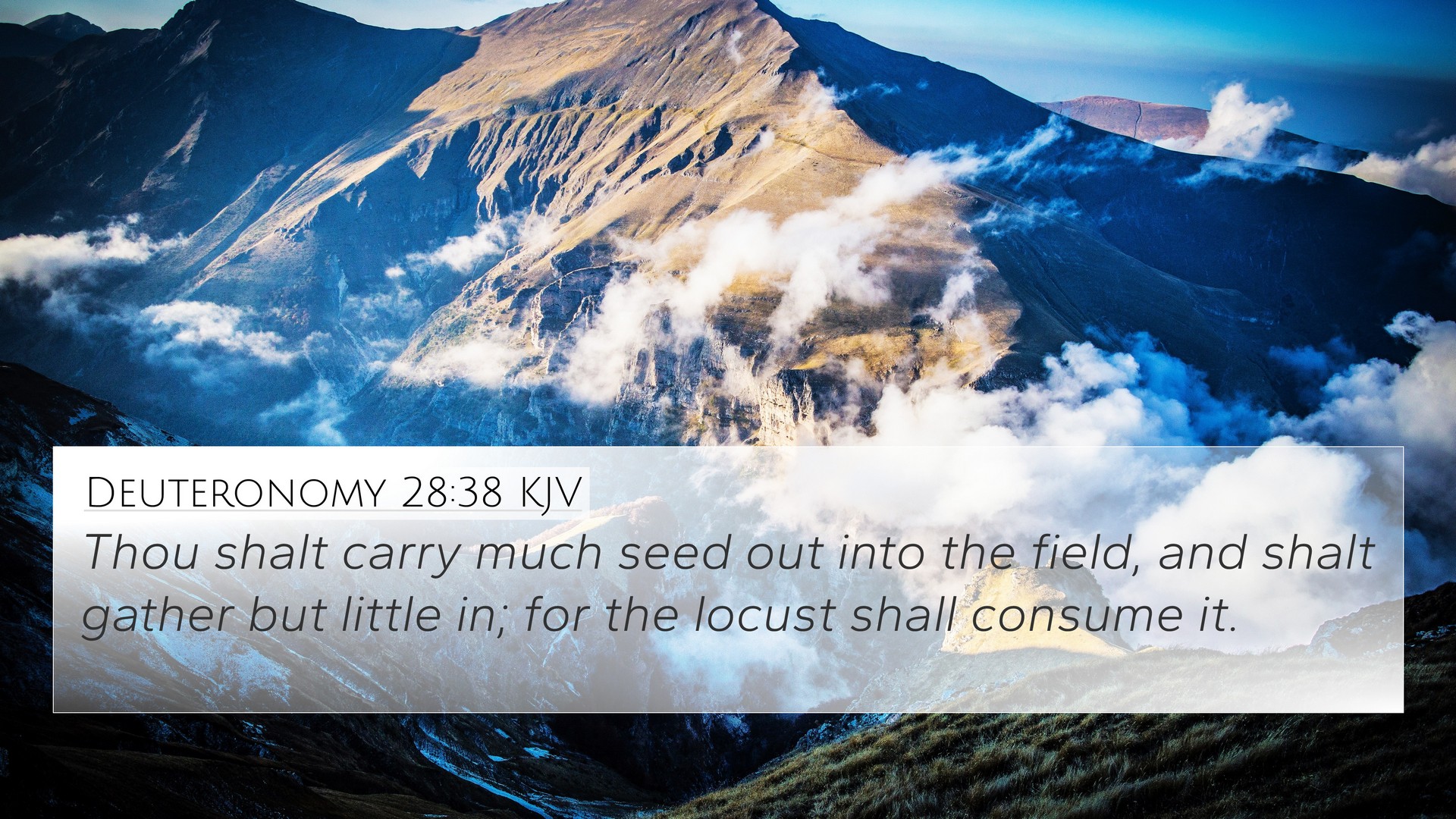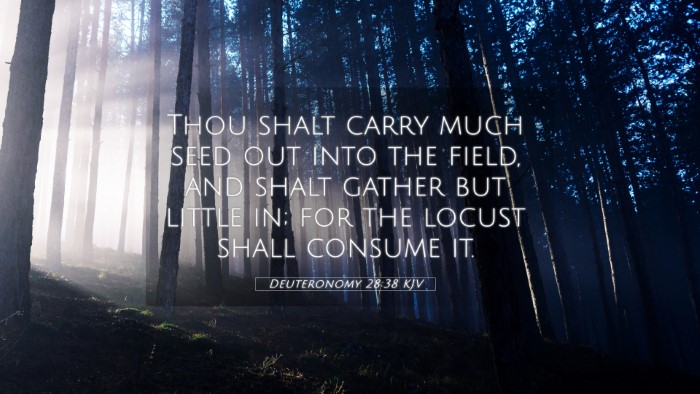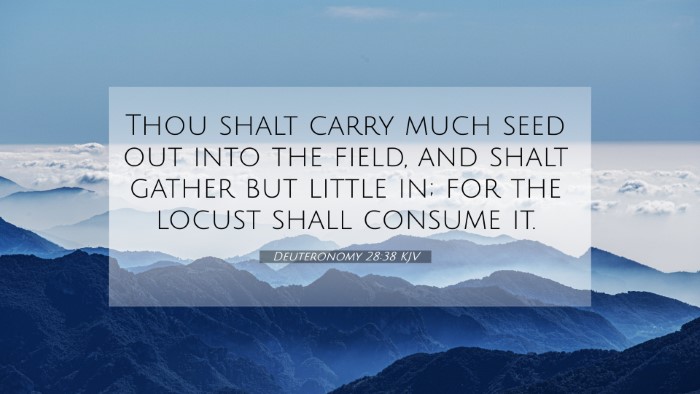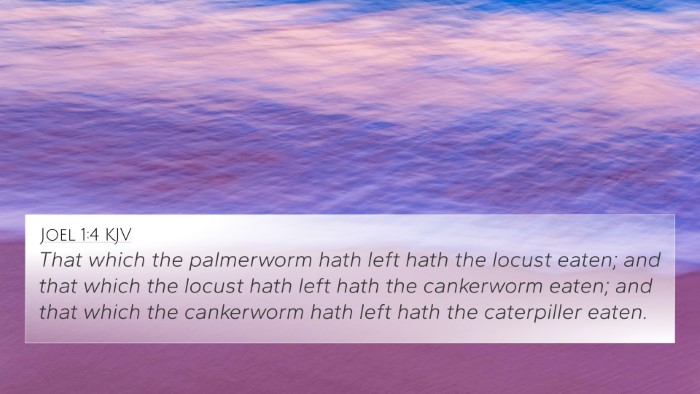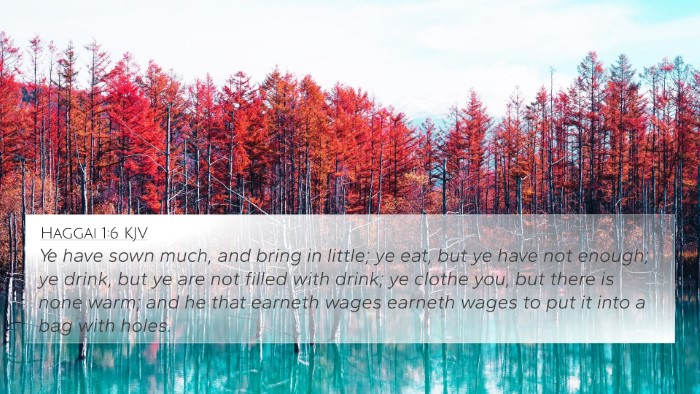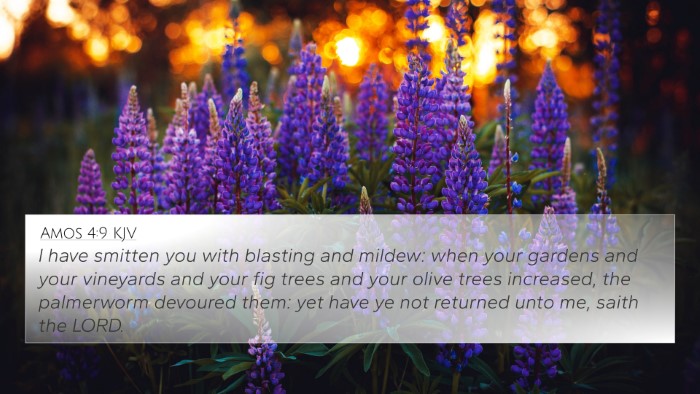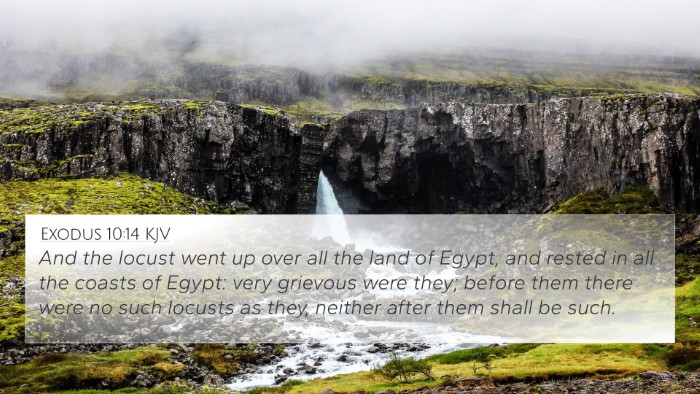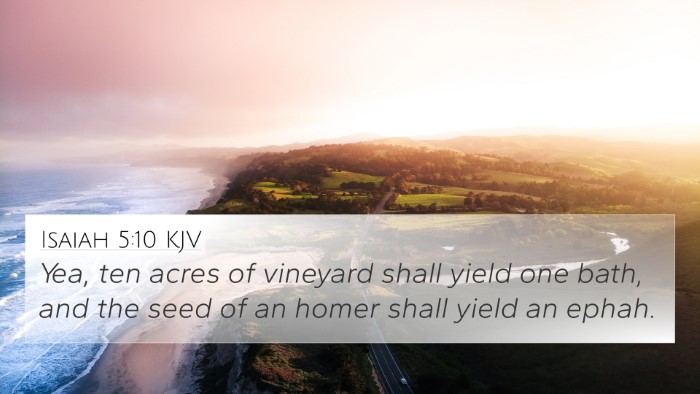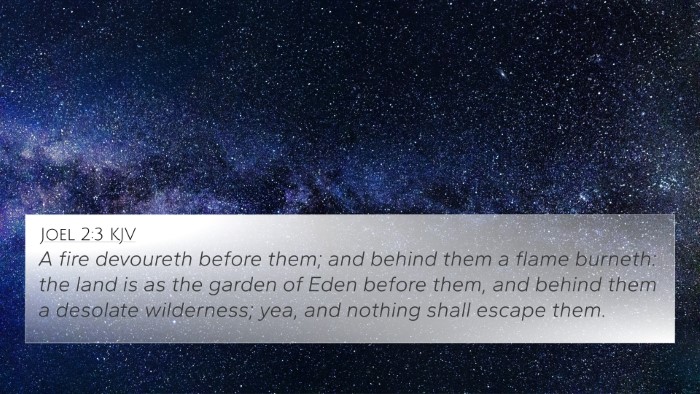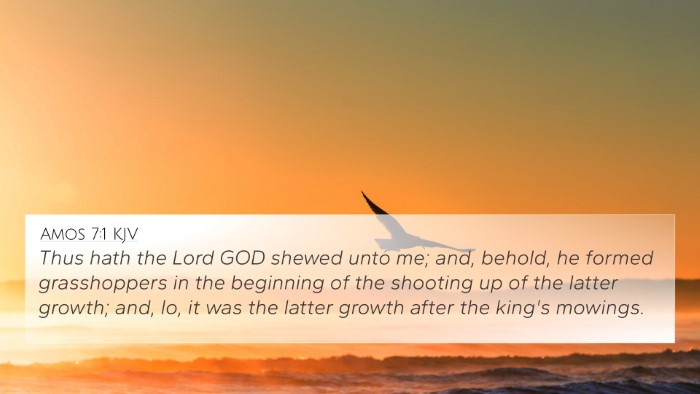Understanding Deuteronomy 28:38
Deuteronomy 28:38 states, "You shall carry much seed out to the field, but gather little in, for the locust shall consume it." This verse encapsulates a profound message regarding the consequences of disobedience to God’s commandments, illustrating a spiritual principle delivered through the lens of agricultural imagery.
Context and Overview
This passage falls within a larger segment of Deuteronomy 28, which outlines the blessings for obedience and the curses for disobedience. The chapter serves as a pivotal reminder of the covenant between God and Israel, emphasizing the importance of adhering to His laws.
Commentary Insights
Matthew Henry's Commentary
Matthew Henry emphasizes the natural loss experienced by those who neglect God’s commands. He notes that hard labor in the field, marked by sowing much seed, would result in little harvest due to divine judgment represented by locusts. Henry correlates this to spiritual dearth, warning that disobedience leads to futile efforts and a lack of spiritual reward.
Albert Barnes' Notes
Albert Barnes suggests that the imagery of seed sowing reflects the Israelites’ potential and capabilities. The loss of the harvest symbolizes not only the physical consequences of disobedience but also a broader spiritual desolation. He evaluates how this serves as a cautionary tale regarding the consequences of straying from God’s prescribed path.
Adam Clarke's Commentary
Adam Clarke elaborates on the figurative use of locusts as a representation of destruction and divine retribution. He describes locusts as abundant and devastating, thus they embody the overwhelming impact of sin upon one’s endeavors. Clarke expresses that this verse illustrates God’s power over nature and His ability to thwart human efforts when His ways are disregarded.
Bible Verse Cross-References
- Leviticus 26:16: This verse speaks about the consequences of disobedience, including the disappointment of efforts.
- Haggai 1:6: The verse speaks similarly about sowing much and reaping little, tying back to spiritual priorities.
- Joel 1:4: This verse details the devastation of locusts, aligning with the imagery of destruction in Deuteronomy 28:38.
- Proverbs 10:4: Discusses how diligent labor is rewarded, contrasting with the futility faced by the disobedient.
- Isaiah 24:4-6: Speaks of desolation across the earth that can be linked to human transgressions against God.
- Matthew 7:17-19: Jesus teaches about good fruit from good trees, relating obedience to God with rewarding outcomes.
- James 3:18: Highlights the fruits of righteousness, complementing the message of reaping what one sows.
Thematic Connections
These verses showcase the theme of reaping and sowing not only in a physical sense but also in terms of spiritual consequences. The biblical idea of causation—what a person sows is what they will reap (Galatians 6:7)—is vividly illustrated through this framework.
Connecting Scriptures
As one explores the connections between Bible verses, several methods can enhance understanding:
- Identifying thematic patterns: Explore how themes such as obedience and its consequences appear across both Old and New Testaments.
- Utilizing Bible concordances: These tools help locate verses that relate thematically, enhancing one’s study of Scripture.
- Engaging in comparative analysis: Examining similar passages can yield deeper insights into the overarching messages found within the Bible.
Application of Cross-Referencing
Practicing cross-referencing can significantly enrich one’s study of Scripture by unveiling layers of meaning. For those preparing sermons or personal studies, a thorough examination of related texts can illuminate the dynamic relationships between God's promises and the human experience.
Conclusion
Deuteronomy 28:38 resonates deeply within the scriptural narrative, serving as a stark reminder of the outcomes of disobedience and the grace granted through adherence to God’s commands. Understanding this verse through commentaries enhances its clarity, encouraging believers to reflect on their relationship with God and the fruits of their labor.
Utilizing resources such as Bible cross-reference guides can further empower individuals in their pursuit of truth, forging connections with other scriptures to illuminate the richness of biblical teachings.
